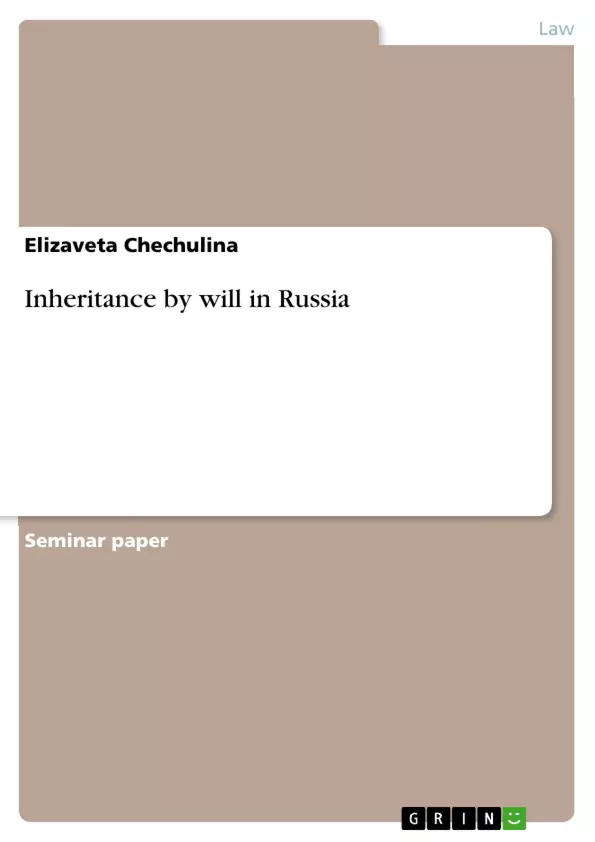In real life, we often do not think about the fact that a person can pass away and leave many problems for his relatives. Many older people, brought up in the spirit of "everything around is state, and therefore mine", do not understand the current situation. The emergence of private property should change the attitude to the issue of transferring property in the event of death. And it is worth thinking about this in advance.
Most people face inheritance issues at least once in their lives. The issue is especially acute when the inheritance includes apartments and residential buildings. In this situation, disputes often arise between heirs, and relatives become enemies. To avoid conflict, it is important to know the basics of inheritance law.
The appearance of expensive property has increased the number of wills. A will is a non-notarized document in which the owner distributes his property and personal non-property rights and obligations among his heirs after death.
The will is notarized and becomes a "legally executed will of the testator" after death. The right to inherit is guaranteed by the state. All citizens have equal rights in the field of inheritance, regardless of gender, race, nationality, language, origin, property and official status, place of residence, attitude to religion, beliefs, membership in public associations.
The topic of inheritance is relevant today. Citizens need to preserve and transfer their property to heirs. Many still do not know their rights and obligations in the field of inheritance, despite the fact that Part III of the Civil Code of the Russian Federation has been in force since March 1, 2002.
There are many discussions about innovations in the inheritance legislation. Practitioners and scientists express both positive and negative views on the situation. Notaries conduct a direct propaganda program in the mass media aimed at the universal conclusion of wills by citizens.
The regulatory framework is extensive, but after the adoption of Part III of the Civil Code of the Russian Federation, some gaps remained and new unresolved issues appeared. The theoretical basis is the Constitution of the Russian Federation and the Civil Code of the Russian Federation.
Inhaltsverzeichnis (Table of Contents)
- Introduction
- Chapter 1. Theoretical Foundations of Inheritance by Will
- 1.1 Concept and principles of inheritance by will
- 1.2 Subjects of legal relations
- 1.3 Rights of subjects of legal relations
- Chapter 2. Features of Inheritance by Will
- 2.1 Form and procedure for making a will
- 2.2 Invalid wills
- 2.3 Revocation and modification of a will
- 2.4 Testamentary refusal
- 2.5 Current problems and ways to solve them
Zielsetzung und Themenschwerpunkte (Objectives and Key Themes)
The objective of this coursework is to examine the legal aspects of wills and related legal issues within the framework of Russian inheritance law. The research focuses on Chapter 62 of the Civil Code of the Russian Federation, which governs inheritance law.
- Concept and principles of inheritance by will
- The subjects and rights of those involved in inheritance legal relations
- The form, procedure, and potential invalidity of wills
- Revocation, modification, and testamentary refusal in relation to wills
- Current challenges and potential solutions within the Russian inheritance system
Zusammenfassung der Kapitel (Chapter Summaries)
Chapter 1: Theoretical Foundations of Inheritance by Will introduces the fundamental concepts of inheritance and the key principles governing wills in the Russian Federation. It examines the definition of inheritance, including its composition and exclusions, and identifies the subjects involved in inheritance legal relations, detailing their respective rights and capacities.
Chapter 2: Features of Inheritance by Will delves into the practical aspects of creating and managing wills. It discusses the required form and procedure for making a will, including the role of notaries and exceptions to standard procedures. This chapter also covers the grounds for declaring a will invalid, the processes of revocation and modification, and the concept of testamentary refusal. Finally, it explores common issues and potential solutions in the application of inheritance laws, highlighting the importance of understanding the legal framework to avoid potential disputes.
Schlüsselwörter (Keywords)
Inheritance law, Russian Civil Code, will, testator, heir, testamentary capacity, legal relations, inheritance procedure, invalid wills, revocation, modification, testamentary refusal, mandatory share, inheritance disputes.
- Citar trabajo
- Elizaveta Chechulina (Autor), 2022, Inheritance by will in Russia, Múnich, GRIN Verlag, https://www.grin.com/document/1514077



